Ghee is one of the essentials of cooking and making sweets; not to mention, it makes a world of difference when you add drizzles of ghee over your food. Ghee is used in most Indian food.
> Read more: Is Indian food vegan?
However, most ghee contains dairy, so it’s a no-go for vegans. That might be behind the scenes, but cows are treated with such cruelty to obtain the butter necessary to make this ghee. This is why vegans should abstain from consuming it.
As sad as giving up butter is, you can still get that mouth-watering taste. Keep on reading to find out how!
Why Vegans Can’t Eat Ghee
Ghee is made from melted butter after the extraction of milk solids from the liquid. Unfortunately, animals go through such an aggressive process for the producers to get that butter. First, the calves (baby cows) are kept away from their mothers. Sometimes they’re even tied up if there isn’t enough space so that they don’t use their mothers’ milk.
> Read more: Is butter vegan?
The mother cows, on the other hand, are given a drug regimen to increase milk production to as high as fourfolds the normal amount, let alone the forced impregnation and birthing.
Additionally, the mother cows are attached to electronic milking machines that are usually quite painful. In many circumstances, cows end up suffering from mastitis and other infections due to the lack of proper sterilization of these machines.
After obtaining the milk, it’s used to make dairy products, including the butter, from which ghee is made. This cycle is repeated over and over until the mother cow is no longer fit for the process. Subsequently, the cow is sent to slaughter, together with male calves that are of no good when it comes to dairy.
What’s Vegetable Ghee Made Of?
As we said, ghee is a butter derivative, and thus, it’s not considered vegan. Nonetheless, you can find multiple vegan options on the market made of organic sources like plants and vegetable oils; these are marketed as vegetable ghee and are safe to use for vegans.
To make vegetable ghee taste like traditional ghee preparations, artificial ghee flavours are added to these oils. So, although your taste buds might be tempted to send warning signals when they come in contact with this vegan alternative, have no worries! It’s just a taste; no animals were hurt during the production of vegetable ghee.
Is There Any Vegan Ghee?
Surprisingly, yes, you can find vegan ghee, just like vegan cheese, butter, and cheese. However, the majority of commercial ghee isn’t vegan, as explained above. In the coming part, we’ll go through some of the popular ghee on the market.
Nutiva Vegan Ghee
Nutiva ghee is mainly made of butter-flavoured coconut and avocado oils that have been blended and steamed. It doesn’t taste that different from traditional ghee because the avocado oil makes the ghee less coconutty.
The only difference you’ll notice is that Nutivo ghee spreads easier than non-vegan ghee, which is not a bad thing. It’s certified organic, vegan, keto and kosher. It’s not certified as a Non-GMO, though.
Nutiva Vegan Ghee Ingredients:
- Organic refined expeller-pressed coconut oil
- Organic avocado oil
- Organ vegan ghee flavour
- Turmeric extract
- Annatto extract
Emkay Vegan Ghee
Emkay ghee is another excellent option for vegans, especially that it has a high nutritional value as it’s free of cholesterol, saturated fats, trans fats, and gluten. Moreover, it’s rich in mono and polyunsaturated fatty acids, which decreases the chances of developing heart diseases related to increased cholesterol levels. The ghee is also rich in vitamin A and D and omega 3 & 6.
Emkay Vegan Ghee Ingredients:
- Vegetable fat
- Refined sunflower oil
- Sesame oil
- Added flavour
- Vitamins A & D
Conclusion
Although ghee is generally non-vegan, a lot of alternatives are introduced to the market every day. Such alternatives are made of mixing oils with artificial ghee flavours, so no innocent animals suffer during their production process.




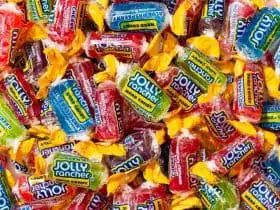

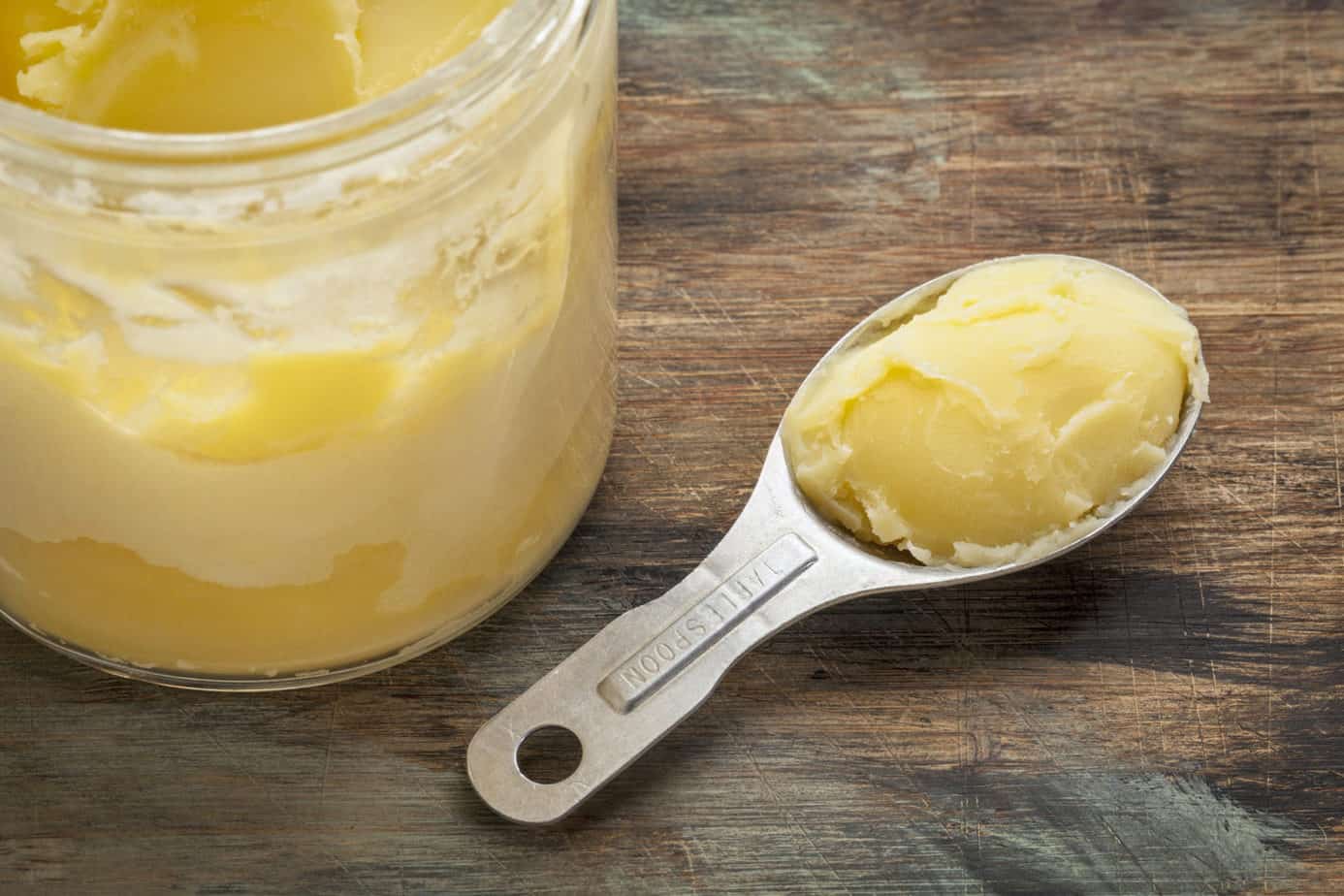


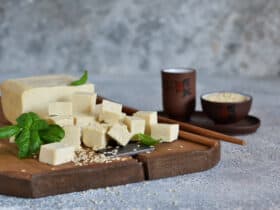
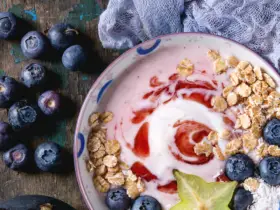
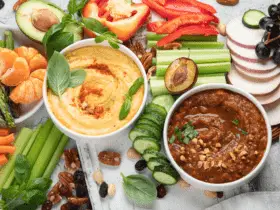
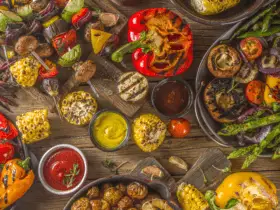
Leave a Reply